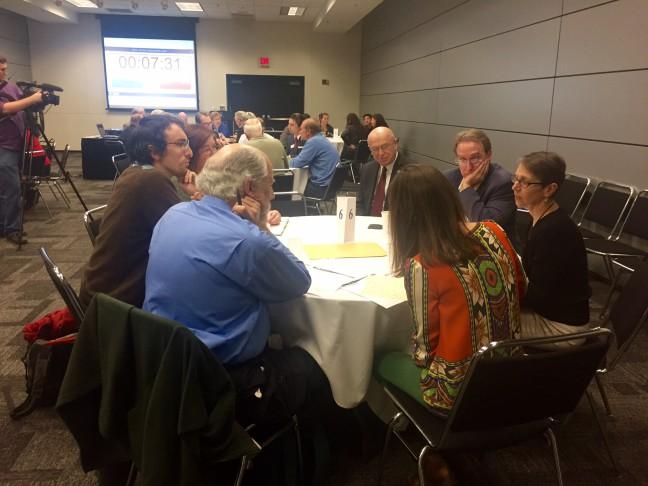While the University of Wisconsin System Board of Regents is planning to take a further look into the experience of minority students throughout the system, UW student leaders believe it is neither the most useful nor the most timely way to go about addressing the complex issue of diversity.
Following the last Board of Regents two-day meeting April 7-8 at UW-Green Bay, where a panel of five students presented the situation of minority students in different UW System schools, Regent President Regina Millner called to create a task force that investigates campus climates, UW System spokesperson Alex Hummel said.
Hummel said membership of the task force has not yet been decided, but the big idea is to have a representation from students, regents, chancellors and student affairs staff members.
The panel that presented at the meeting consisted of students of color and students with a passion for promoting diversity and inclusivity on campuses, Hummel said. Mariam Coker, Equity and Inclusion Committee president at Associated Students of Madison, was the representative for UW.
“As an ASM member, it’s my responsibility to be in constant contact with these higher people,” Coker said,“The issues that are happening on UW-Madison campus are not isolated here, but pretty reflective of all system schools.”
Coker gave a 5-minute presentation to the Board of Regents that focused on her personal experiences and those of her friends, as marginalized students on campus.
She said student leaders’ recent efforts to make UW a more equitable and inclusive campus, as well as hopes for the UW System to take action inspired the Board of Regents to establish the task force.
“This is one more step that the regents, president and regent leadership want to undertake, to make sure that we’re listening to our students, understanding their experiences — good and bad — and how we might be able to help the institutions improve those experiences,” Hummel said.
Board of Regents approves UW-Madison specific tenure policies
ASM Chair Madison Laning, however, is skeptical of the task force’s potential to solve real problems with diversity that have been haunting the UW System lately.
Instead of passively listening to students explain in a limited time slot what’s going on in their lives, Laning said, the regents should actively educate themselves on the different experiences of students.
Though the Board of Regents is making an effort to respond to the recent string of hate and bias incidents directed toward underrepresented students throughout the system, Laning said a task force is not the most efficient way to go about addressing the issue.
“Like many other task forces the UW System has had, I do not think this one will be beneficial,” Laning said. “I think this is just a mask that makes it look like we’re doing something, but in reality they need to be implementing actual programs and initiatives on each campus to address issues we already know are there.”
While the task force is still early in its making, Hummel said the Board of Regents expects it to come up with an end-of-the-year report with recommendations that could help improve current campus climates and give students a better experience.
“The goal is to not only to collect and examine perspectives and real life experiences, but to also examine and — where necessary — recommend areas where our action can help improve the experience of all students,” Millner said in a statement.
The regents should already have enough knowledge of what the campus climates are like throughout the system, Laning said. The board needs to take immediate actions to address the problems they already know exist, she said.
Coker agreed that merely listening and getting information don’t have tangible outcomes, but she said it’s a step into the right direction.
“Speaking and listening to stories is a very very important step, and this step should be a guiding force to the action,” Coker said.
Laning gave some recommendations of how system leaders can solve the problem, such as reevaluating institutional principles by looking at programs and initiatives offered at different UW campuses, seeing which ones work on which campuses, and which ones don’t.
For the ones that are proven to be helpful to underrepresented students, regents should think of ways to expand them, Laning said.
“There needs to be more communication between students and the regents,” Laning said. “That task force may create that conversation, but there needs to be communication happening before task forces are even created.”



















